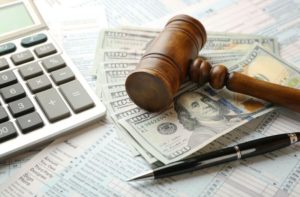Content Reviewed by: Dave Gormley •
August.3.2023 Vertified Content
Aug 3, 2023 | Read Time: 4 minutes

You can be forced to pay for the divorce and child support debts of someone else, if you do this one very common thing.
What if you suddenly had your entire life savings drained dry due to your child’s debts? Yes, if you do this one thing we advise against, you can be forced to pay for the divorce and child support debts of someone else.
We have a true horror story where a retired mother is paying through the nose for her son’s child support arrears, simply because she did something extremely common in our society – she put her son’s name on her bank account.
Many older people put their children’s names on their bank accounts, so the children can pay the bills if they get sick. Sounds convenient, right? But this is a dangerous idea for a number of reasons, and now we have a good illustration of one of them.
In this case it was a son’s child support debt from prior family law problems. Because his mother trusted him, and she was unaware of his very substantial child support arrears, her entire financial future is now in doubt.
Why This Can Happen
First, you must understand that if you put someone’s name on your account, you are legally making them joint owner of the account. It is legally their money now and they can withdraw it at will. You probably knew that.

And you should know this applies to any asset – like your house. There are other reasons not to add your children’s names to your house deed, but this is another one.
Are you sure you know all the debts and legal obligations of your children? If not, do not put their name on your accounts! The much, much better plan is to give them a power of attorney. See more details at the end of this story.
Here is the horror story to illustrate this point: A mother was living with her unemployed adult son, who had failed relationships in the past producing children. Mom put her adult son on her bank account, so he could pay the bills and help her out as she was getting older. Unbeknownst to her, the adult son was heavily in arrears on his child support payments – amounting to tens of thousands of dollars!
You can almost guess what happened next. The office of child support enforcement put a lien on all bank accounts belonging to the son. Since his name was on Mom’s bank account, he was a joint owner of that account. Therefore, they put a lien on it for the full amount of the past due child support payments.
Suddenly, and with no warning, Mom got a call from her bank one day to let her know she was broke. The account she was living off was completely drained by her son’s child support lien. Ouch!
Can You Prevent This?

If the money is already disbursed into the hands of the single moms who were denied child support all those years ago, you would never get it back. From a practical standpoint, it would be gone and spent already.
What You Should Do Instead
You should give your child a power of attorney instead of adding their name to any of your assets. Read about that here in our post about durable powers of attorney. A power of attorney lets your child (or anyone else) conduct your financial affairs for you, but it does not expose you to their personal debts and problems.
Conclusion
Don’t put your child’s name on your bank account. The wiser plan is to keep control of your bank account, and give your children a power of attorney instead. That way they will be able to control the account if you are ill, but it will not be their money. It is still your money and you will not inadvertently pay for their past mistakes.
Discover what you need to know about wills. Click here to see our Free Legal Consumer Guide on wills in Maryland and get answer to your questions today.
Know your options. Be informed. Protect yourself.


